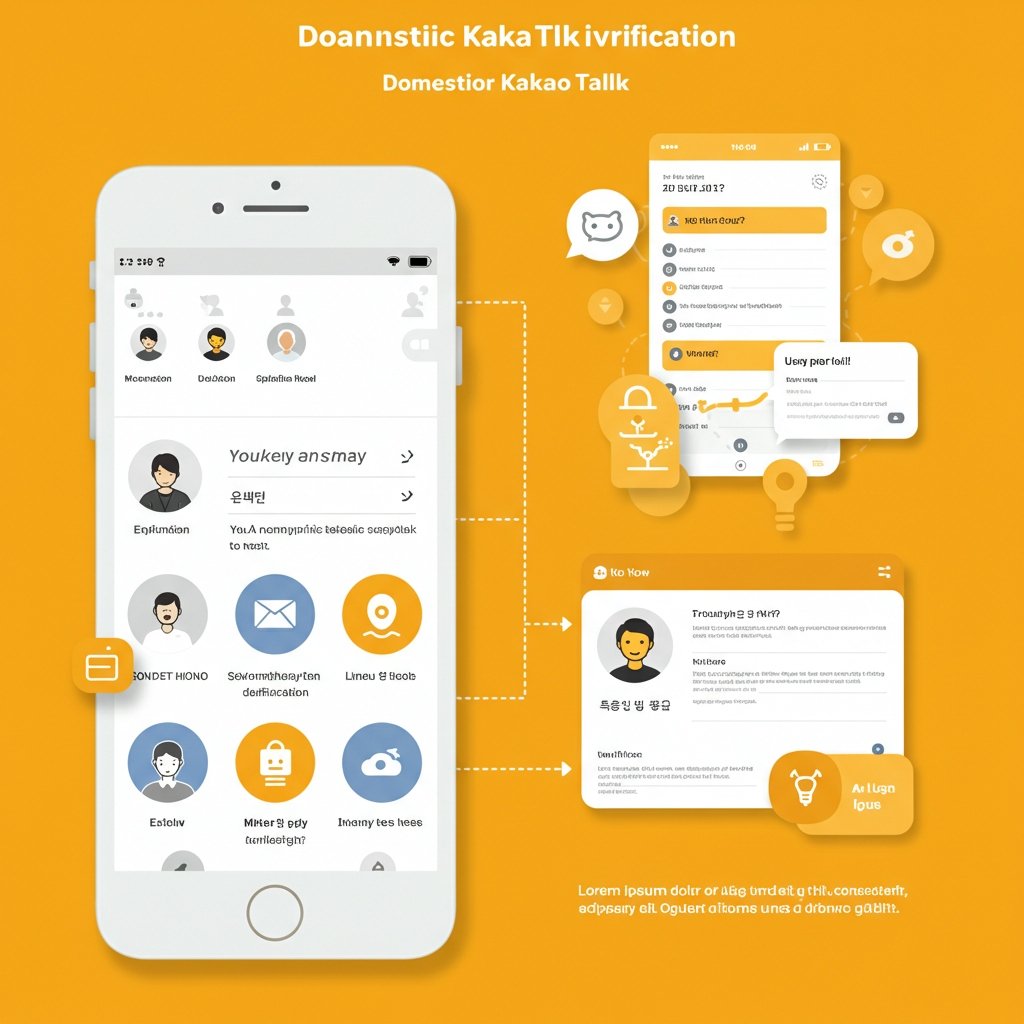KakaoTalk is South Korea’s most widely used messaging app, integrated deeply into the digital infrastructure of Korean society. From chatting and payments to identity authentication, its role goes far beyond a simple communication tool. One of its key security features, 국내카톡인증 (Domestic KakaoTalk Verification), ensures that users are locally verified in South Korea.
Understanding Domestic KakaoTalk Verification
Domestic KakaoTalk Verification.” It refers to a system used to confirm a user’s identity within South Korea using KakaoTalk, often as a prerequisite for accessing certain online services, government platforms, or financial tools.
Unlike global verification systems, domestic KakaoTalk verification is specifically restricted to users who are:
- Physically located in South Korea
- Using a South Korean phone number
- Subscribed to Korean mobile carriers (e.g., SKT, KT, LG U+)
- Holding a Korean resident registration number or foreigner registration number
This system acts as a real-name verification process through KakaoTalk to authenticate identities in line with Korean legal and data protection standards.
Why Is Domestic KakaoTalk Verification Necessary?
Domestic KakaoTalk verification exists for several important reasons:
1. Compliance with Korean Regulations
The South Korean government enforces strict regulations on digital identity, privacy, and financial transactions. Services involving payments, e-commerce, or access to personal information must comply with real-name verification laws. KakaoTalk, being deeply integrated with platforms like Kakao Pay, Kakao Bank, and other APIs, needs to ensure that users are legitimate and local.
2. Preventing Fraud and Abuse
Online fraud, identity theft, and spam accounts can cause significant harm. 국내카톡인증 helps prevent these issues by ensuring that only verified Korean users can access high-security features or platforms. It helps maintain trust and transparency.
3. Limiting Access to Domestic Services
Some Korean platforms and services (e.g., certain job portals, banks, educational tools, or medical apps) are meant strictly for domestic users. By implementing KakaoTalk verification restricted to domestic users, companies ensure their platforms are used as intended.
How Does Domestic KakaoTalk Verification Work?
The process of verifying your KakaoTalk account domestically involves the following steps:
- Registration with a Korean Mobile Carrier
You need a SIM card from a Korean provider and a local phone number. - KakaoTalk Installation and Setup
Install KakaoTalk using your Korean number. The app verifies your device using SMS or phone call confirmation. - Real-Name Verification via a Korean ID
You may need to input your Korean resident registration number or foreigner registration number, along with other identification checks (such as a photo ID or mobile verification app). - Optional Biometric Verification
Some services may require biometric authentication, such as facial recognition or fingerprint scans for added security. - Integration with Third-Party Services
Once verified, KakaoTalk may serve as a login or verification method for other apps (e.g., banking, health care, education platforms).
Who Needs Domestic KakaoTalk Verification?
Domestic KakaoTalk verification is especially relevant to:
- Korean citizens living in South Korea
- Foreign residents with Korean mobile numbers and registration
- Businesses targeting the Korean market
- Students or professionals accessing domestic services
It is not applicable to users residing outside Korea without access to Korean telecom services.
Limitations of Domestic KakaoTalk Verification
Though secure and effective, there are some limitations:
- Inaccessibility for Overseas Users: Korean nationals or foreigners living abroad cannot complete Domestic KakaoTalk Verification without a local phone number.
- Language Barriers: The verification process is often conducted in Korean, which may present a hurdle for non-Korean speakers.
- Data Privacy Concerns: Real-name verification involves sensitive data, which some users may feel uncomfortable sharing.
Benefits of Domestic KakaoTalk Verification
Despite its limitations, this system offers several advantages:
- Enhanced security for transactions
- Reliable identity confirmation for government and financial services
- Reduced risk of scams and fake accounts
- Smooth integration across digital platforms within Korea
Domestic KakaoTalk Verification and Global Users
For users outside South Korea, KakaoTalk still functions for basic chatting and communication. However, access to certain features—like Kakao Pay, web portals requiring identity confirmation, or some premium content—remains restricted without domestic verification.
Some Korean companies may offer alternative verification methods (like passport scans or email-based verification), but these are less secure and not widely accepted.
How to Check If You’re Verified
To check your KakaoTalk verification status:
- Open KakaoTalk settings
- Go to Privacy > Verification Information
- See whether your account is registered as a verified domestic user
You can also try accessing services like Kakao Pay. If you receive a notification requiring Korean identity verification, your account is likely unverified.
Frequently Asked Questions (FAQ)
Q1: Can I use KakaoTalk without Domestic KakaoTalk Verification?
Yes, but only for basic messaging and social features. You won’t be able to use services that require identity verification.
Q2: Is domestic verification available for foreigners?
Yes, but only if you have a Korean mobile number and a valid foreigner registration card issued in South Korea.
Q3: Can I verify using a global number?
No. Domestic KakaoTalk Verification requires a Korean phone number issued by a domestic telecom provider.
Q4: What services require KakaoTalk verification?
Kakao Pay, Kakao Bank, government services, health care apps, educational platforms, and some websites that use Kakao as an authentication method.
Q5: Is it safe to provide personal information for verification?
Yes, Kakao follows strict Korean privacy laws and encryption standards, though you should always ensure you’re on the official app or website.
Conclusion
국내카톡인증, or Domestic KakaoTalk Verification, is a critical component of South Korea’s digital infrastructure. It ensures that users accessing sensitive services are genuinely based in South Korea and are properly authenticated. Whether you’re a resident, a foreign national living in Korea, or a business working within the Korean digital market, understanding and completing this verification is vital for secure and seamless access.
While global users may feel restricted by it, the system plays a crucial role in maintaining a secure and regulated digital environment in South Korea.

